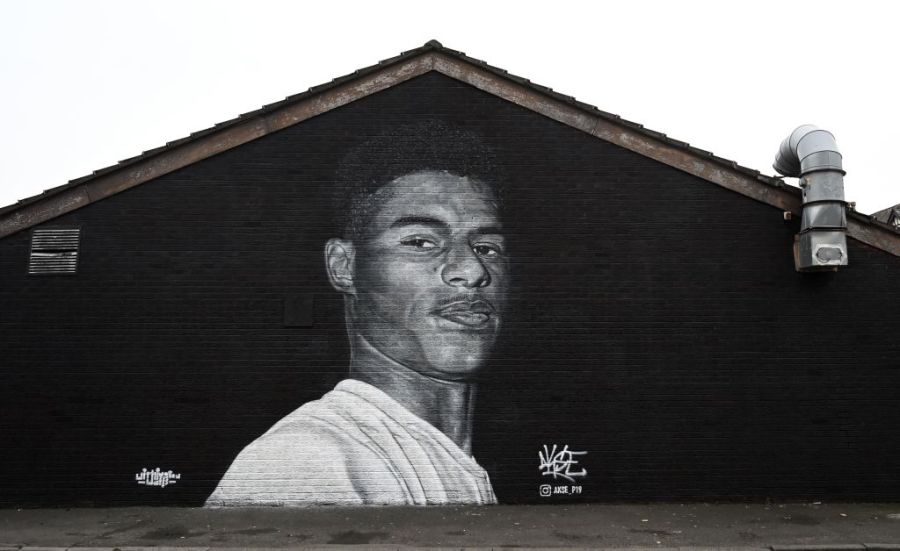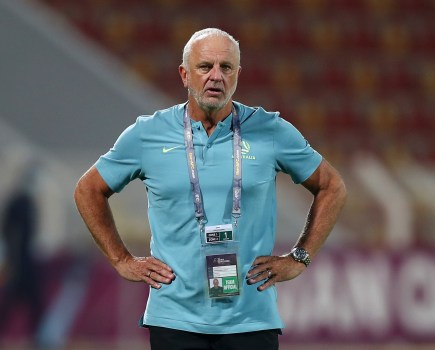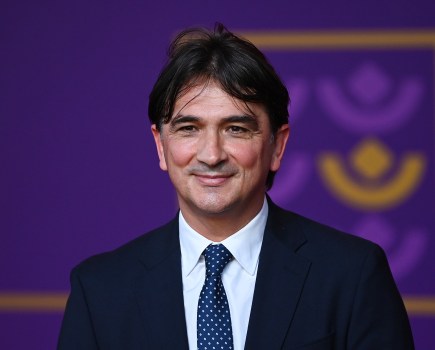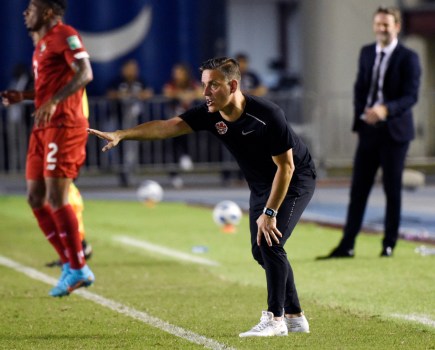How the Manchester United and England forward went from promising youngster to a national treasure
Back in April, as the coronavirus pandemic was tightening its grip on the United Kingdom, health secretary Matt Hancock used a televised public briefing to take aim at Premier League footballers, suggesting they needed to “make a contribution, take a pay cut and play their part”.
It was a craven attempt to deflect focus from the scrutiny the government’s handling of the virus was beginning to draw, and to jab an accusing finger at a group often viewed by the wider populace as overpaid and underworked. But, little did Hancock know, the altruistic efforts of one Premier League player in particular were already supporting the vulnerable and would soon inspire a nation.
“How can I help?” wrote Marcus Rashford when he first approached FareShare via email in February. The Manchester United forward had been inspired by the food-distribution charity’s ActiveAte initiative the previous summer, which sought to supply food to vulnerable children during school holidays, and was concerned the looming pandemic would see yet more kids from low-income households go hungry in the months to follow.
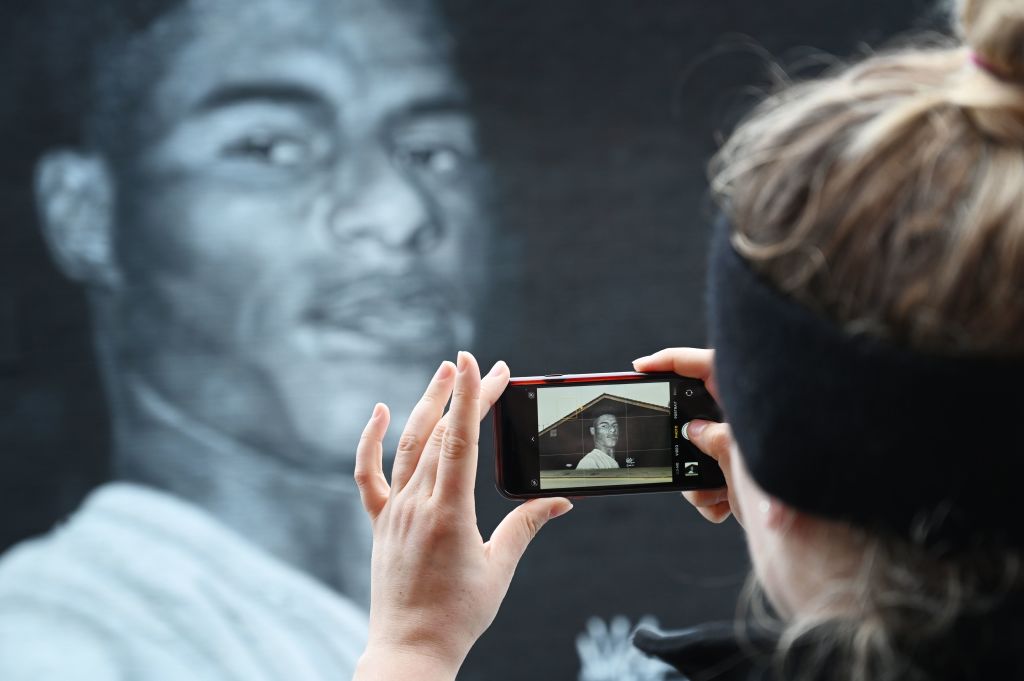
“It’s very rare to have an inbound offer, and an offer that says: ‘What do you need and how can I help?’” says Alyson Walsh, FareShare’s commercial director.
By the end of June, Rashford had helped raise around £20 million for FareShare, shattering his initial target of £100,000. He’d also lent his support to the Black Lives Matter campaign, spoken out against online bullying and successfully campaigned the government to overturn its decision not to extend the free-school-meals scheme over the summer holidays and implement a £120 million “COVID Summer Food Fund” which reached 1.3 million children.
Rashford’s efforts are informed by his own experiences. The 23-year-old has spoken openly about how important free school meals were to him as a child, and how hard his mother, Melanie, a single parent of five, had to work and budget to keep the family fed. “It’s definitely because he remembers his family, he remembers he was on school dinners and how difficult it was for his mum,” says Dave Horrocks, chairman of Rashford’s first grassroots club, Fletcher Moss Rangers.
And it was the gift for football Rashford displayed upon joining Fletcher Moss – who’d previously reared Manchester United stars Wes Brown, Danny Welbeck and Jesse Lingard – as a five-year-old that signposted a route to a more comfortable existence.
He shone on the Mersey Bank playing fields of West Didsbury, where Fletcher Moss are based, once scoring 12 goals in a single game and revelling in nutmegging the coaches or scoring from the halfway line. The young striker was seven years old when Horrocks received a call from a United scout inviting Rashford to train with the Premier League club.
Rashford would exhaust himself in those early sessions with United, to the point he’d fall asleep against one of his older brothers, Dwaine or Dane, on the drive home. But then, when he’d arrive back at the modest, terraced family home – initially in Withington and Fallowfield, later in Wythenshawe – he’d spring back to life, practising his touch by throwing a ball against a sloped roof and controlling it as it fell, or racing to join his friends kicking a ball around beneath the cherry tree in front of his house.
“He was getting as much football as possible,” says Horrocks, “because that’s what he wanted to do.”
When he was just 11, in recognition both of his exceptional talent and his difficult circumstances, Rashford became the youngest player ever enrolled into United’s MANUSS (Manchester United Schoolboy Scholarship) scheme. That meant an increased training schedule, attendance at the club’s affiliated Ashton-on-Mersey School and a move to live with host parents close to the school and the training complex at Carrington. “That was the important point for him because it gave him extra stability,” says Paul McGuinness, a prominent former United youth coach.
Early signs of the conscientiousness and empathy that have marked out Rashford’s activism this year can be found in his progression through United’s academy. The 20-time champions of England make a concerted effort to instil such values in their youngsters – “right is might” was first coined by former director of youth football Jim Ryan, and is an often-repeated mantra within the Carrington hallways. Politeness to all staff and visitors is demanded, and on tournament trips abroad, the boys take turns making speeches to thank their hosts, presenting pennants to opponents and gifts to hotel workers.
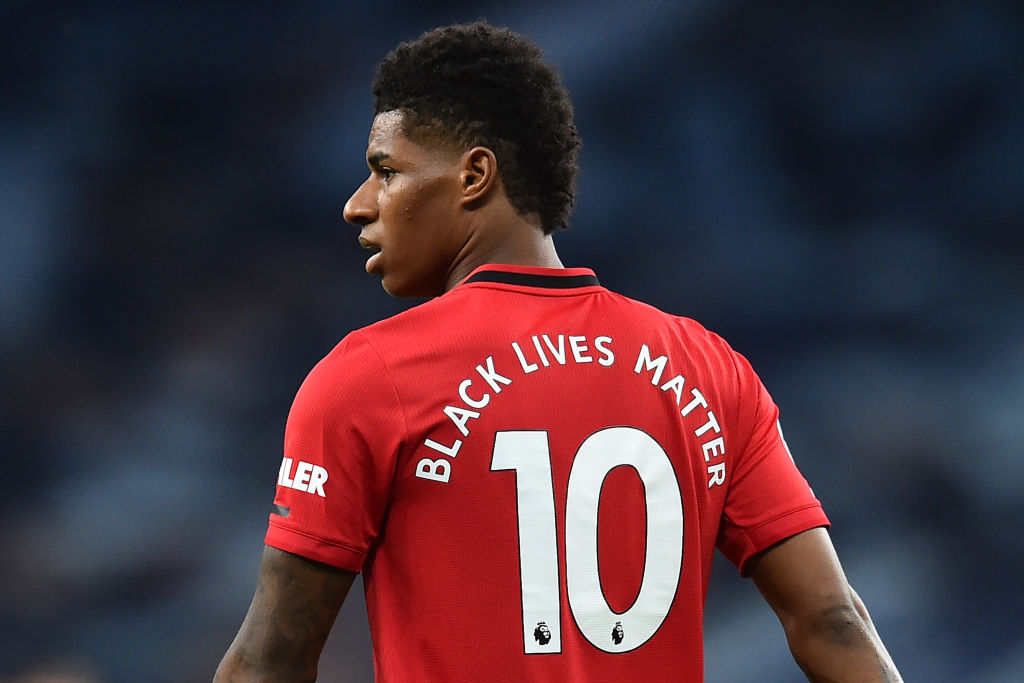
“Marcus would have had to do it a few times,” says Colin Little, the United Under-18 coach. “They all get a chance at it, to go and speak to the man in the canteen or go and give him a signed shirt. I’m sure other clubs are doing it, but when I got here, I’d never seen it before. You look at Marcus now, and you think, wow, what a good spokesman.”
Wearing the famous red shirt on tournament jaunts gives United’s youngsters a small taste of the fan attention thrust upon the club’s senior stars. When, as a 16-year-old, Rashford was part of a travelling squad participating in the Milk Cup in Northern Ireland, he revelled in pleasing the young supporters who’d queued up for an autograph or a moment’s interaction with a future hero.
“They were getting quite big crowds,” remembers McGuinness. “There are kids coming up, wanting autographs. He would be one of the ones who really engaged with the fans and engaged with the kids. He saw it as part of the idea that he’s in a privileged position, that these kids, he could make them happy and he could do positive things.”
That empathy, his desire to give something back and help others less fortunate, is something Tosin Kehinde, a friend and former youth team-mate, recognised instantly in Rashford.
“He did speak about how his upbringing shaped him into the person he was,” Kehinde says, “and how much he loved the team he was at, Fletcher Moss. He always talked about going back and seeing the kids whenever he could. That showed a little bit of the side of him we’re seeing right now.
“When you’re playing for Manchester United and England, with some people it might go to their heads and change their characters a little bit, but never has that been the case with Marcus.”
And the fruits of Rashford’s charitable nature were abundant long before his work with FareShare and his vocal activism in 2020. At Christmas time in 2018, the United superstar personally delivered care packages – containing thermal clothing, underwear and toothpaste – to Manchester’s homeless; he partnered with Selfridges on a similar campaign the following year.
He’s been back to visit pupils at one of his old schools, too, dispensing advice and words of inspiration. He even once handed over £1,000 to ensure all the children could take home a chocolate selection box at Christmas. One day he hopes to establish his own foundation.
While United’s academy might have provided a platform upon which his nascent selflessness was able to flourish, those who worked closest with Rashford in the youth ranks cannot – and do not – claim credit for the extent of his altruism.
“That comes from God, I think, a young man to do that,” says Tony Whelan, United’s assistant academy director. “That comes from within, that comes from him. I don’t think it’s something that anybody else should take credit for in that sense. For us to see it with a young boy within our tenure at the club, those that have been around him and have had the privilege to work with him, it does give you a sense of pride.”
Almost universally, in conversations with those who have worked closely with Rashford along his journey from academy fledgling to Old Trafford icon, the word “mature” recurs.
It applies to his above-the-curve talent, which saw him taking on the likes of future first-team colleagues Paul Pogba and Jesse Lingard – both almost five years his senior – in one-v-one contests in a small, caged all-weather pitch as an undersized 12-year-old training with the U18s.
But it also applies to his ability to deal with setbacks and welcome unexpected opportunities. When a bout of Osgood-Schlatter disease – a painful knee condition common among adolescent boys – temporarily corroded his mobility and scythed his trademark pace, for example, he focused on sharpening other skills, dropping into central midfield and broadening his passing arsenal.
And when, in February of 2016, a pre-game injury ruled Anthony Martial out of a Europa League showdown with Midtjylland at Old Trafford, United’s coaching staff didn’t hesitate in elevating an 18-year-old Rashford to the starting line-up for his first-team debut.
“I’m not going to change anything,” Louis van Gaal, United’s manager at the time, told his staff in the changing room. “Marcus is going to come in. He’s capable of doing it. I’m confident in that.”
Van Gaal’s confidence, of course, was well placed. Rashford exhibited a veteran’s poise as he scored twice in a 5-1 victory, and followed it up three days later with another brace, against Arsenal, on his Premier League debut.
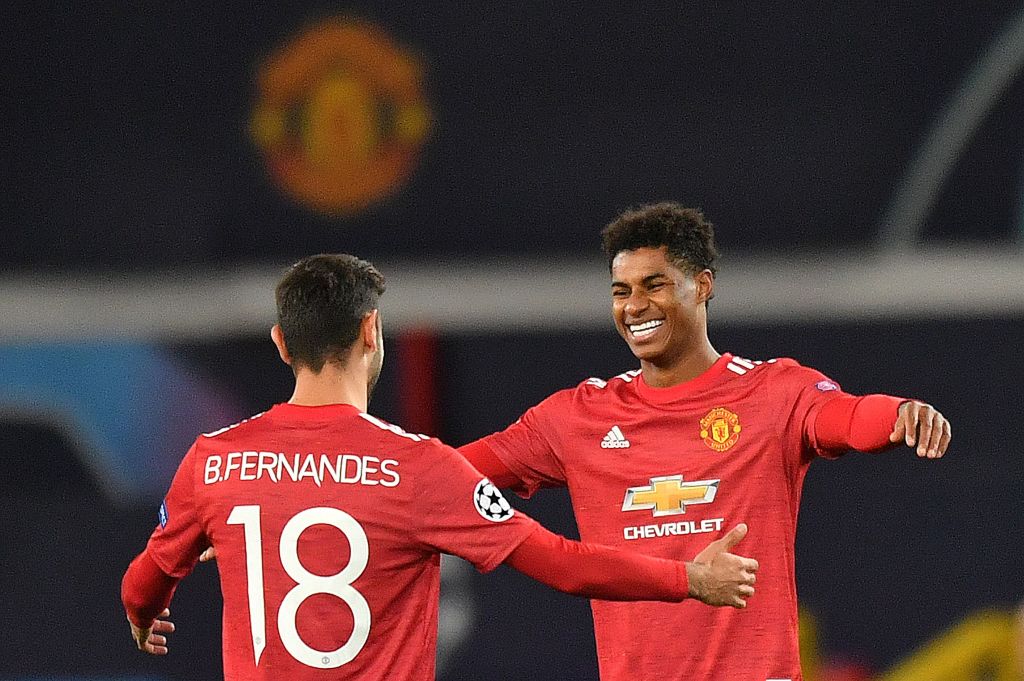
“I had to explain to him the set pieces,” Frans Hoek, one of Van Gaal’s assistants, remembers of the ad-hoc preparations for the Midtjylland game. “I went to him. I looked him in the eyes. Of course, he must have been nervous, but it didn’t show. He was concentrated on what he had to do. He made a very strong impression on me. That look in his eyes, it was, ‘Ok, I have a chance now and I can show them.’
“He’s a different character, and different characters can do incredible things, things that surprise you. The beautiful thing for me is, he has a platform because of the player he is and he’s using it to help other human beings.
“Mature is a very good word for him.”
It should have come as little surprise, then, that Rashford conducted himself like an adult among squabbling children when Parliament, by a margin of 322 to 261, voted against a Labour Party motion to, as Rashford had implored, extend free school meals into October’s half-term break and beyond. He has, on numerous occasions, appealed to MPs to put aside party politics and sniping for the greater good, aiming to smooth tensions more tribal even than those he has overcome in earning the support of rivals fans, players and clubs. He also took to social media to request that his followers refrain from directing abuse at these politicians, citing his own experience as a target for online bile as something no one should have to endure.
Inspired by Rashford’s fight against child food poverty and sharing his despair at the decision to curtail the scheme – which had provided meal vouchers worth £15 a week to children in low-income families outside of school term time – cafes, restaurants, pubs and even local councils around the country began to pledge to fill the gap. Rashford’s Twitter timeline was alight in late October as he retweeted these organisations, notifying his followers of where the free food for the vulnerable could be found.
He was awarded an MBE in the Queen’s birthday honours in October, to add to the PFA Merit Award and recognition from the Football Writers’ Association, the City of Manchester and the Pride of Britain awards. Rather than allow these accolades to bookend a job well done, though, Rashford’s admirable off-field work continues. In November, he forced yet another about-face from the government, with prime minister Boris Johnson calling the United striker to confirm a pledge of £170 million to combat child food poverty through the winter and into the new year.
This announcement came just days after Rashford teamed up with Burberry to launch a series of initiatives to help disadvantaged people, including a £25,000 grant to two youth clubs
he attended as a boy and a donation to FareShare that will finance 200,000 meals.
In a letter to his ten-year-old self he penned for the campaign, Rashford wrote: “For a young boy who says so little, one day you will have a voice that speaks for many.”
With boundless reserves of empathy and the courage of his convictions, Rashford has effected real change and emerged as an icon and role model for a generation. Contribution made. Part played. And then some.
Article by Ryan Baldi
This article first appeared in the February Edition of World Soccer. You can purchase old issues of the magazine by clicking here.

